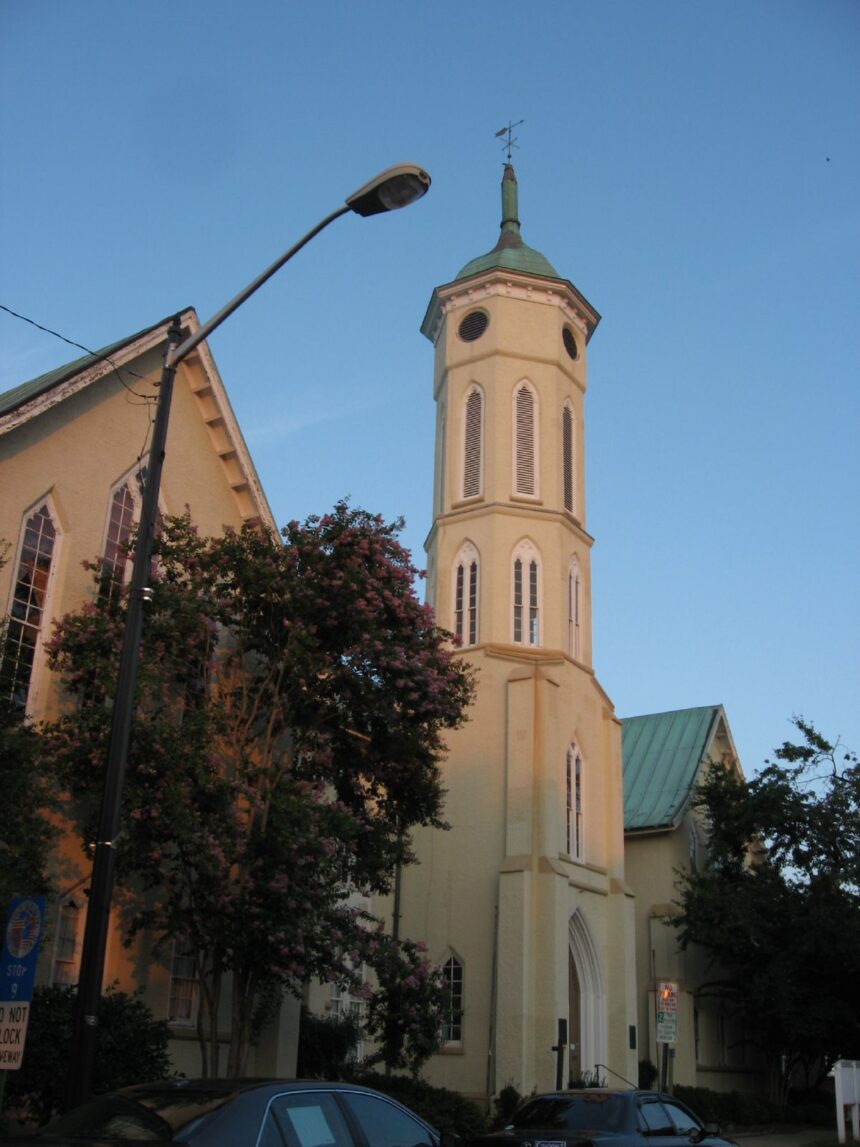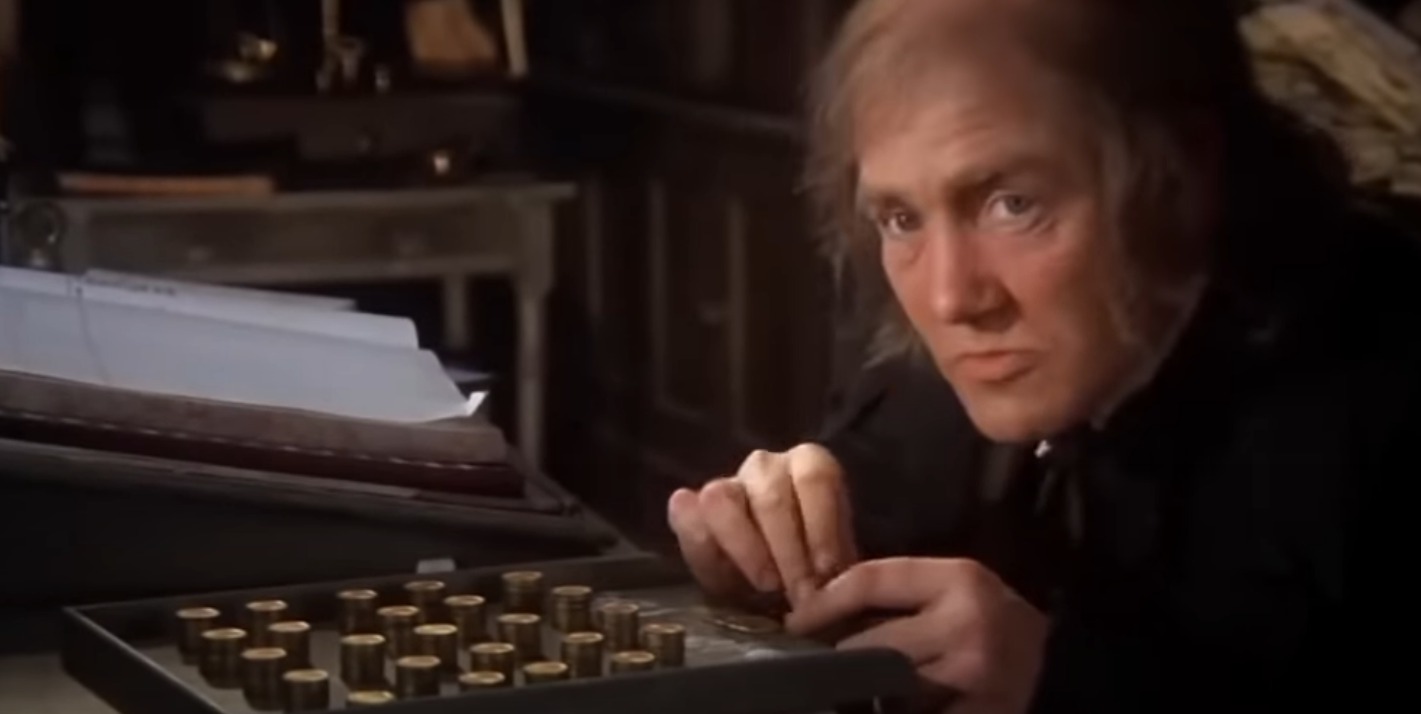
Once envisioned for the old Maury School, could the University of Mary Washington be the perfect partner for a world-class presidential library?
Editor’s Note: This column by Shaun Kenney appeared in June, while the Fredericksburg Advance was operating under a different name. With spring fully upon us, and the future of the Renwick building again being hotly debated, it’s a good time to revisit this innovative approach to handling one of the city’s most-valuable assets.
by Shaun Kenney
COMMENTATOR
As the Fredericksburg region has grown over the last 20 years, so too has our understanding as to what the wider legacy of Virginia’s history means to future generations.
No longer the Crossroads of the Civil War or George Washington’s Boyhood Home, Fredericksburg has come to embrace some of the darker and more neglected elements of our history. Fredericksburg as a destination port for the slave trade co-mingles with our history along the Underground Railroad, where thousands of African slaves carried one another across the “rapidly rising waters” of the Rappahannock. Hunter Ironworks became the arsenal of Virginia democracy for a time when freedom was an idea restricted by race, sex, and class whose embers caught flame in the crooked timbers of humanity.
James Monroe was the only national public figure to ever reach the degree of popularity as one of Fredericksburg’s other favorites sons, none other than George Washington. Monroe’s accomplishments both as politician and statesmen are encapsulated in his Monroe Doctrine, a policy invoked by luminaries such as Teddy Roosevelt, Jack Kennedy, and Ronald Reagan time and time again.
Yet Monroe’s darker legacies – his participation in the regime of slave labor and as the Virginia governor who violently put down Gabriel’s Rebellion – reminds us that America’s rise towards a “more perfect Union” has not been on a feather pillow.
The old Fredericksburg Courthouse was designed by the famous architect James Renwick Jr. of Smithsonian fame, an 1850s era Gothic Revival whose connection to higher purpose is linked to both science and faith, as his design of St. Patrick Cathedral in New York during a time when Catholics were decidedly “other” reminds those who pick up on the architect’s signature design.
The Idea of a Library
The legacy of former President James Monroe is a tricky thing to nail down, held in trust by no less than three organizations: the Fredericksburg-based and University of Mary Washington sponsored James Monroe Museum and Memorial Library located on Charles Street, Ash Lawn-Highland sponsored by the College of William and Mary near Monticello, and the James Monroe Memorial Foundation’s preservation efforts centered on his birthplace near present-day Colonial Beach.
Many years ago, there was a concerted effort to build a presidential library at the old Maury Elementary School, now converted into condominiums. Infighting sadly broke the back of any effort to forge the three elements into one whole, but the promise of a national-level research library in the heart of Fredericksburg was tantalizing, even hopeful, during a time where history remained a defining part of the city and the region.
As recently as 2016, some reminiscence of what the Renwick Courthouse could be was mentioned in the pages of the Fredericksburg Free Lance-Star:
Now, as for the old courthouse—the Renwick Building is a very important part of Fredericksburg that needs to be protected for the future. I think that more thought needs to go into what to do with this iconic building.
Another thought is the need for a James Monroe Presidential Library. We have the James Monroe Museum and Memorial Library, which is administered by University of Mary Washington. They do a great job at the building on Charles Street, but let’s encourage them to move to center stage on Princess Anne Street, in a grand building that would be a fitting home for James Monroe’s works.
Mr. Russell could not be more right, could he?
No less a luminary than Rodger Provo thought as much in 2012 when he mused on the possibilities of what could be a thriving centerpiece of Virginia thought and culture in the very heart of Fredericksburg, seeing the University of Mary Washington as central to the idea. Editorials have been written commending the idea as late as 2005. The late John Goolrick – a man whose memory should not be forgotten nor his approval for a venture lightly taken – commended the idea back in 2003.
So with the city fathers nodding from afar, let us take a look at the old Renwick Courthouse and ask ourselves whether Fredericksburg deserves such an institution, one where Monroe’s legacy could be examined in the fresh light and the opportunities to present Virginia history in its entirety can be explored?
A National Treasure in the Heart of Fredericksburg
Of course, imagine the non-Fredericksburg native who may in the off chance believe that this is a project where one must be convinced through argument! Such people exist, dear Virginian, but allow me to set forward our best arguments to our shareholders one brick at a time:
THE UNIVERSITY OF MARY WASHINGTON: One finds it nearly remarkable how few Fredericksburg natives have walked the long concourse at Mary Washington, much less taken advantage of their Great Lives series during the course of the year. With an annual budget of $140 million and an endowment just over $58 million, the University of Mary Washington certainly has a stake in the Monroe legacy.
Yet as with many Virginia colleges and universities, UMW struggles to maintain its relevance in an ocean of whales. UVA, Virginia Tech, VMI and William & Mary would all drown Mary Washington’s budget. Yet consider for a moment that a James Monroe Presidential Library would be a national fundraising opportunity, with a national audience and a national inflection point. Such a project built into the heart of Historic Fredericksburg and 50 miles outside of Washington isn’t just a diamond in the rough, but a diamond in a sea of diamonds.
Historic Fredericksburg isn’t dead by a stretch, and the opportunity to build a national-level resource arguably in walking distance to the main campus is a great attraction indeed. Such a move would turn Mary Washington into a premier institution for history, political science, archaeology, and historic preservation with the right sort of planning and foresight. In fact, it is a masterstroke.
THE CITY OF FREDERICKSBURG: If the decision to keep the Renwick Courthouse in public hands is firm, then the option of a public-private partnership to turn the courthouse into a bunch of apartments, condos, or restaurants is about as boring as it gets.
What Fredericksburg lacks is a centerpiece. Note that a James Monroe Presidential Library in the heart of the city doesn’t preclude the idea of income producing options such as restaurants (vital for visiting professors and dignitaries), but rather enhances the project writ large. Imagine the old courthouse filled to the brim with students and citizens listening to Tim McGrath go over his latest biography of James Monroe. Or imagine Annette Gordon-Reed sharing the importance of Juneteenth. Or the bitter details of the socio-economic rationale behind Gabriel’s Rebellion in 1800.
Not an empty husk looking for tenants, but a crown waiting for jewels. The Smithsonian’s elder sister deserves such an investment – does she not?
THE COLLEGE OF WILLIAM AND MARY: What if it were a joint project? What if we get all the resources and reputation of the College of William and Mary and the interest of Colonial Williamsburg on board? Does Mary Washington have to reap all the glory alone? Perhaps we ought to… but we don’t have to.
Yet William and Mary brings another angle beyond Monroe’s Virginia connection, but rather their international relations program whose students are actively grappling with a changing world where the Monroe Doctrine is at higher risk than ever before.
THE JAMES MONROE FOUNDATION: Bringing together all three boards may not be possible, but it would surely be more interesting for tourism to link Westmoreland to Albemarle with Fredericksburg as the hub on the wheel.
TOURISM: Gobs of tourism dollars. Gobs.
THE GEORGE WASHINGTON FOUNDATION: Between Kenmore and Ferry Farm? How cool would it be to have a national-level resource right in the heart of Fredericksburg?!
THE WASHINGTON HERITAGE MUSEUMS: The list grows long! Mary Washington House, the Rising Sun Tavern, Hugh Mercer Apothecary, the new St. James House (which I have sadly not visited yet). How would they all benefit from a James Monroe Presidential Library?
AFRICAN AMERICAN HISTORY and THE REAL OPPORTUNITY: Most people have no idea that thousands of people dared to cross the Rappahannock River to freedom, and not just while tens of thousands of Yankees were parked across the river at Chatham.
This is perhaps the real opportunity for the James Monroe Presidential Library, if for no other reason than the untold story – and the opportunity to build from the ground up – the story of an American president where the voices of enslaved persons make the foundation rather than an appendage to the story. History preserved with a modern institution, a sizeable campus, and more than this a Founding Father who grappled with many of the same questions we are grappling with today – in Virginia, in America, and internationally as well.
Such an approach would be unique and one-of-a-kind in America, and with foundations working assiduously to attempt to reforge Monticello and Montpelier along such lines and finding resistance, the attraction of a clean slate might prove irresistible to those looking to add their voices to the American lexicon.
Leadership, Diplomacy, Statesmanship
One would be hard pressed to explain how this is a bad idea to a soul, right?
Of course, the difficulties are twofold. First and foremost, there must be a recognition that this sort of project would have to be a partnership between the University of Mary Washington and the City of Fredericksburg, that this is not a fob-off as the ill-fated National Slavery Museum which former Governor Doug Wilder tried unsuccessfully to build in Fredericksburg. Such a commitment will require investment, time, patience, but most of all a vision respected by both parties.
Second and perhaps more difficult will be the James Monroe Presidential Library’s ability to escape the politics of the present day. One hopes that by not putting the problem in words, we can escape its difficulties with this one magic formula: that we sincerely believe that everyone who participates is doing so in the very best of faith and for the common good.
Yet perhaps that problem is a problem for the future. Our immediate task is perhaps one of recognition. If we sincerely believe that the Renwick Courthouse complex is worthy of renovation, and we additionally believe that the space deserves something better than mere commercialization, then perhaps it is time to rescue an old idea and bring it to fruition.
Certainly, the University of Mary Washington deserves such an institution and Fredericksburg deserves the jewel in her crown. Certainly, the city fathers of the past – John Goolrick among them – are smiling favorably on the idea. Perhaps more certain is the fact that our future world desperately requires the spark and engagement this national-level institution would create.
Give the James Monroe Presidential Library a chance, folks. The fruits are simply too great to ignore.
Photo Credit: “Historic Fredericksburg, Virginia” by Ken Lund is licensed under CC BY-SA 2.0.




